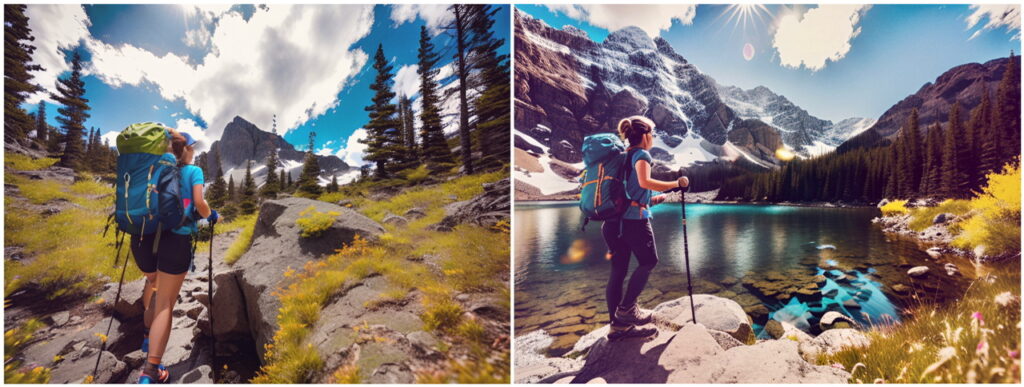
January 2023, Cass Bowers, a sports and recreation reporter for Western Washington University’s student newspaper, The Front, interviewed WWU NTT instructor Rob Eis. She was interested in knowing what women can do to feel safe while solo hiking and what self-defense education is available for Western students.
Here is the result of that interview.
Bowers: “Over and over again within women’s outdoor circles, I hear women talk about how they refuse to hike (or adventure in any way) alone, or I hear women mention how they get large dogs just to feel safe on the trail. I think that because of the society we live in, it’s reasonable for women to be scared of solo adventuring. But I’d also like to know more about what women who want to brave the outdoors alone can do to feel safe.”
Question 1. Have any of your women’s self-defense course students expressed to you that they wanted to take self-defense classes in order to feel safer while running, hiking, etc. alone?
Yes, some students say they’re looking to improve their safety and peace of mind when running, camping, planning to travel after graduation, moving to a busier city, and for those living alone. Sometimes they bring those concerns up at the start of the quarter, or they realize at the end of the course that we covered those circumstances in broad scenarios.
I’ve also had women share with me after the course was over that they’d been the victim of a violent crime. Less than three years ago, one person conveyed that the class was helpful to her because as she dealt with PTSD as the result of her roommate having been killed by her roommate’s ex-boyfriend.
Question 2. Self-defense courses obviously help with physical skills. Do you think that self-defense classes also help mentally, with the fear that many women have? Do you think a self-defense course is a good way to build confidence?
People can fake confidence, but they can’t fake competence. That is where I put my attention, making everyone competent and very well-rounded.
Any new experience that takes a person outside of their comfort zone grants them room to expand their horizons, and what becomes more familiar becomes less fearsome. A self-defense course should progressively build in technique and intensity.
There also are precursors to physically defending oneself, which involve psychological defenses and verbal skills. Even at a subconscious level, predators seek out victims who appear less attentive. It can be as simple as the way that a person walks. My goal is for my students to recognize what signals they might be sending a potential attacker. Someone can adjust their demeanor and body language to feel safer without devoting their life to endless martial arts training.
Question 3. What do you think is the most important thing to know about self-defense in general and/or about self-defense classes?
Benjamin Franklin said, “An ounce of prevention beats a pound of cure.” Have you noticed that people start taking care of themselves *after* a heart attack? Homeowners fortify their house *after* a burglary. Why not take routine steps in preparation and prevention instead of having to figure out what to do *during* a dangerous encounter? Knowing what you’re capable of and what you’d be willing to do is important.
Being in shape and being able to run fast and jump far does a great deal. I’ve asked some parents what they’re comfortable doing to protect themselves. When I ask if they’d push their thumbs into another human’s eye socket, they squirm and are uneasy. Then I ask if their child was being harmed, would they do that, and they suddenly exclaim they’d tear out the attacker’s soul. Basically, it is the mother bear coming out of them. The next question is, “Who is going to protect their loved one if they’re not taking care of themselves?” That means taking care of themselves mentally, emotionally, and physically. The more prepared a person is the less paranoid they will be and this type of preparation subsequently reduces a lot of the emotional baggage when thinking about personal safety. The most important thing to know about self-defense is to know yourself and know what preparations and sacrifices you are willing to make. Would you spend one school quarter of your life studying something that would reduce your stress, help you identify and circumvent danger, and in the event of a violent encounter, help to preserve your life?
Question 4. You teach a self-defense course at Western. What can WWU students expect to learn/do in this course? Will you be teaching this course again in the winter and spring?
Yes, I teach the self-defense course Fall, Winter, Spring, and sometimes even Summer. My course teaches students how to detect situations, how to defuse them if they escalate, and finally how to defend against them if they become physical. A vast majority of altercations can be circumvented through awareness and avoidance. I address areas when there is no other option but to go hands on. These topics entail striking methods, defending common street attacks and various strangle holds, how to survive a knife attack, a baseball bat attack, how to fight back when pinned on the ground, how to use an attacker’s clothing against them, how to use improvised weapons as well as the pros and cons of popular self-defense products like stun guns and pepper spray and a handful of alternative items that I find to be far superior choices for personal safety.
Students can expect to learn laws of self-defense and that they can be victorious in a physical fight and then plagued with the emotional aftermath or lose a legal fight. Therefore, we always want our choices to be morally, legally, and ethically sound and congruent with not wanting to fight but potentially needing to.
